AP – Fistfights break out in bread lines. Residents wait hours for a gallon of brackish water that makes them sick. Scabies, diarrhoea and respiratory infections rip through overcrowded shelters. And some families have to choose who eats.
“My kids are crying because they are hungry and tired and can’t use the bathroom,” said aid worker Suzan Wahidi and mother of five at a United Nations (UN) shelter in the central town of Deir al-Balah, where hundreds of people share a single toilet. “I have nothing for them.”
With the Israel-Hamas war in its second month and more than 10,000 people killed in Gaza, trapped civilians are struggling to survive without electricity or running water.
Palestinians who managed to flee Israel’s ground invasion in northern Gaza now encounter scarcity of food and medicine in the south, and there is no end in sight to the war.
Over half a million displaced people have crammed into hospitals and UN schools-turned-shelters in the south. The schools – overcrowded, strewn with trash, swarmed by flies – have become a breeding ground for infectious diseases.
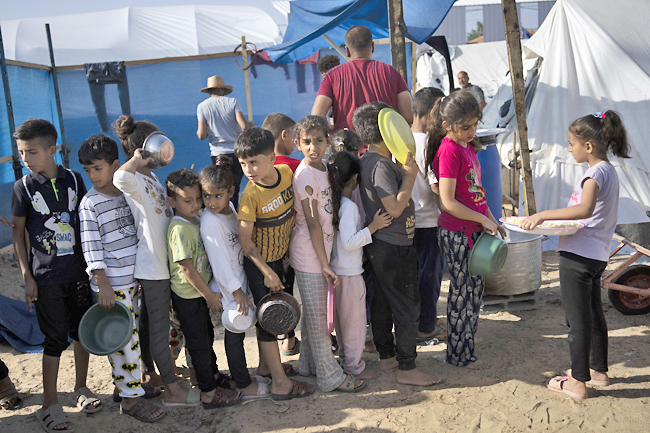
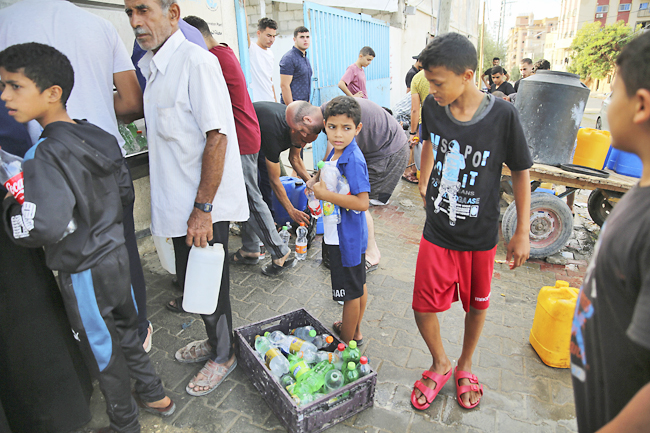
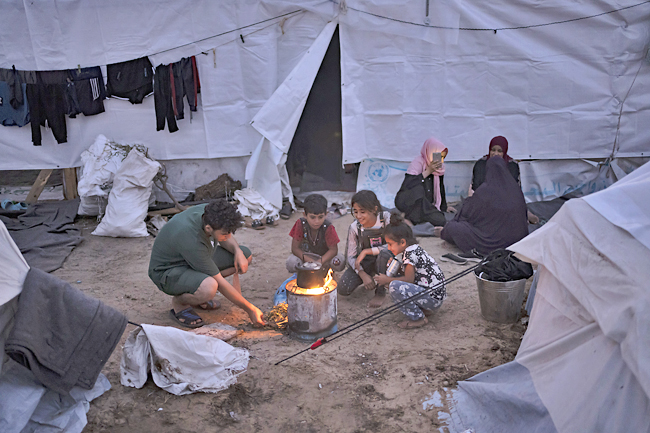
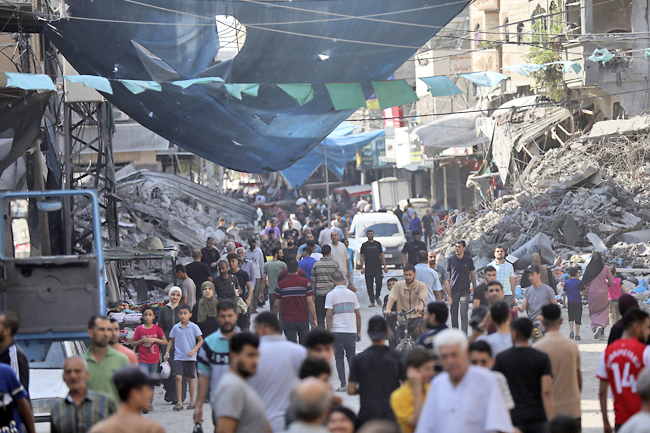
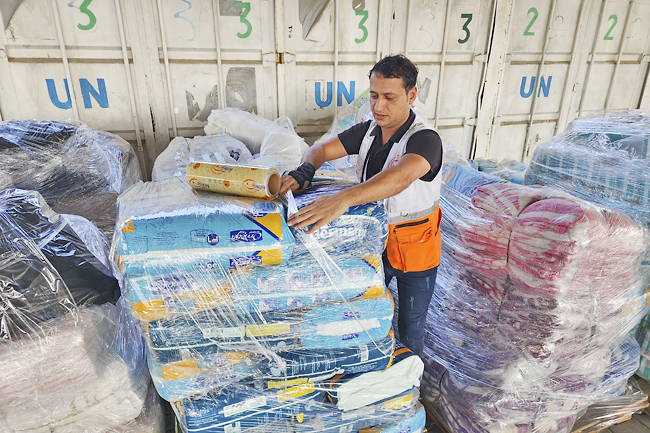
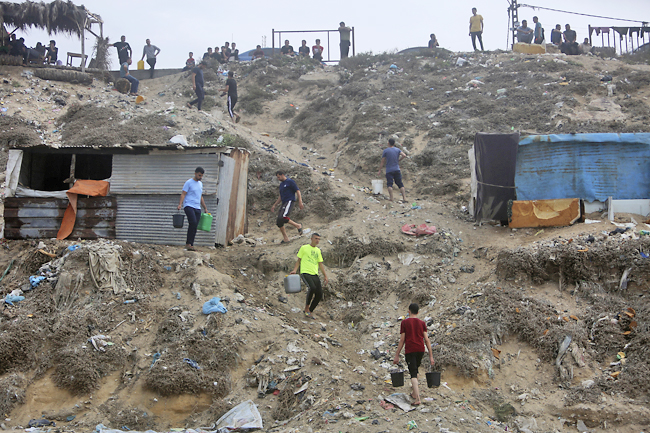

Since the start of the war, several hundred trucks of aid have entered Gaza through the southern Rafah crossing, but aid organisations say that’s a drop in the ocean of need.
For most people, each day has become a drudging cycle of searching for bread and water and waiting in lines.
The sense of desperation has strained Gaza’s close-knit society, which has endured decades of conflict, four wars with Israel and a 16-year blockade since Hamas seized power from rival Palestinian forces.
Some Palestinians have even vented their anger against Hamas, shouting insults at officials or beating up policemen in scenes unimaginable just a month ago, witnesses said.
“Everywhere you go, you see tension in the eyes of people,” said aid worker Yousef Hammash with the Norwegian Refugee Council in the southern town of Khan Younis. “You can tell they are at a breaking point.”
Supermarket shelves are nearly empty. Bakeries have shut down because of lack of flour and fuel for the ovens. Gaza’s farmland is mostly inaccessible, and there’s little in produce markets beyond onions and oranges. Families cook lentils over small fires in the streets.
“You hear children crying in the night for sweets and hot food,” said photographer Ahmad Kanj, 28, at a shelter in the southern town of Rafah. “I can’t sleep.”
Many people say they’ve gone weeks without meat, eggs or milk and now live on one meal a day.
“There is a real threat of malnutrition and people starving,” said spokesperson Alia Zaki for the UN’s World Food Programme. What aid workers call food insecurity is the new baseline for Gaza’s 2.3 million people, she said.
Famed Gazan dishes like jazar ahmar – juicy red carrots stuffed with ground lamb and rice – are a distant memory, replaced by dates and packaged biscuits. Even those are hard to find.
Each day families send their most assertive relative off before dawn to one of the few bakeries still functioning. Some take knives and sticks – they say they must prepare to defend themselves if attacked, with riots sporadically breaking out in bread and water lines.
“I send my sons to the bakeries and eight hours later, they’ve come back with bruises and sometimes not even bread,” said 59-year-old Etaf Jamala, who fled Gaza City for Deir al-Balah, where she sleeps in the packed halls of a hospital with 15 family members.
One woman told The Associated Press that her nephew, a 27-year-old father of five in the urban refugee camp in northern Gaza, was stabbed in the back with a kitchen knife after being accused of cutting the line for water. He needed dozens of stitches, she said, speaking on condition of anonymity for fear of reprisals.
The violence has jarred the tiny territory, where family names are linked to community status and even small indiscretions can be magnified in the public eye.




